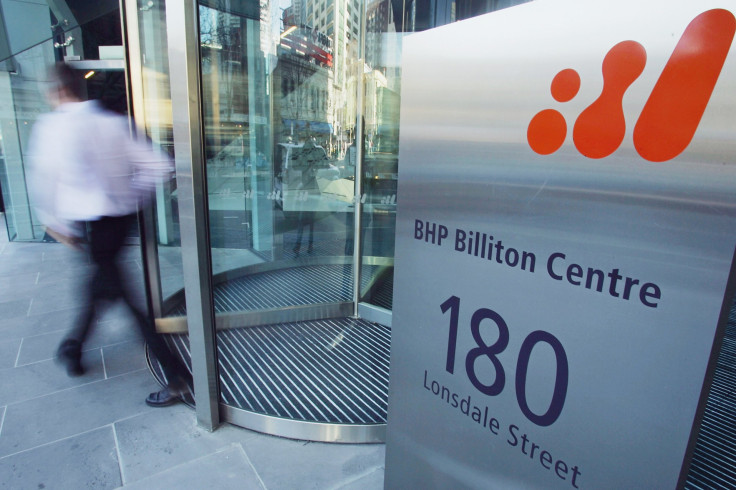Panama Papers Update: Law Firm Mossack Fonseca Listed BHP Billiton’s Two British Virgin Islands Companies As ‘Mandatory High Risk’

Panama-based law firm Mossack Fonseca, which is at the center of a massive leak, assessed BHP Billiton Ltd.’s two companies in British Virgin Islands as “mandatory high risk” after the Anglo-Australian mining giant authorized the businesses to receive huge sums of money, the Guardian reported Monday. The exposé related to Mossack Fonseca Sunday revealed widespread international corruption connected to offshore tax shelters.
Documents related to the leak show that BHP is associated with at least 19 companies that were registered in the British Virgin Islands with Mossack Fonseca's help, according to the Guardian. The documents, which are a part of over 11 million papers revealing the law firm’s every day operations, showed how it set up offshore, paper companies and secret accounts to help clients launder money, dodge sanctions and avoid taxes. The documents, dubbed the Panama Papers, were obtained from an anonymous source by the German newspaper Süddeutsche Zeitung and shared by the International Consortium of Investigative Journalists (ICIJ) Sunday.
Mossack Fonseca’s warning against BHP came up after an “enhanced due diligence” check carried out by the law firm, when it identifies clients who may be taking up riskier business projects, the Guardian reported.
The BHP subsidiaries in question are BHP Billiton Finance South Africa Ltd. and BHP Billiton UK Holdings Ltd. The place where BHP Billiton Finance South Africa’s operations are performed is listed as Australia, the risk assessment document for the company showed. According to the Guardian, the files read: “Authorized capital is higher than the norm. The company’s activity is not stated.”
BHP, in several different filings, reportedly disclosed the existence of its companies in British Virgin Islands to the U.S. Securities and Exchange Commission. The company also has been subjected to intense supervision in Australia over its offshore tax arrangements and it has been blamed for using a complex web of companies to reduce the Australian tax it pays.
The document reportedly suggested Mossack Fonseca “request the source of funds and or source of wealth for this company,” details about BHP Billiton Finance South Africa’s beneficial owners and the reason for the high capital. A beneficial owner is a person or an entity that eventually owns the companies. According to the Guardian, the risk assessments implied Mossack Fonseca was uncertain of who actually owned the two companies.
A spokeswoman for BHP reportedly said: “As regards Mossack Fonseca’s internal assessment, based on a recent review of our historical filings and correspondence, it does not appear that we were aware of this assessment, nor the basis on which the assessment was conducted. Therefore, we are unable to comment on this. Mossack Fonseca was engaged by BHP Billiton in an administrative capacity only. Our understanding is that it was provided with information that was necessary to fulfill these activities.”
The spokeswoman added that BHP Billiton Finance South Africa and BHP Billiton UK Holdings were bound by U.K. tax on their worldwide income, and the reason they were set up in the British Virgin Islands “was simplicity in relation to making distributions from a corporations law perspective and choice of functional currency from a reporting perspective,” the Guardian reported.
“The capital of this company [BHP Billiton UK Holdings] reflects the value of those assets [of BHP Billiton group]. BHP Billiton Finance South Africa Limited was established to provide financing to the BHP Billiton Group in South African Rand.”
The shareholders funds — which include paid-in capital for BHP Billiton Finance South Africa — have not exceeded $300 million, which is not material given the size and funding requirements of the BHP Billiton group, the spokeswoman reportedly said. Furthermore, after the May 2015 de-merger, the company was no longer owned by the BHP Billiton group, the spokeswoman added, according to the newspaper.
Meanwhile, Mossack Fonseca called the leak a “crime” and an “attack” on Panama. Ramon Fonseca, the director and one of the founders of Mossack Fonseca, reportedly denied any wrongdoing saying the firm is a victim to “an international campaign against privacy.”
“This is a crime, a felony,” Fonseca told Agence France-Presse. “This is an attack on Panama because certain countries don't like it that we are so competitive in attracting companies.”
While most of the alleged dealings are said to be legal by ICIJ, the revelations are likely to have a political impact on many of those named, according to reports. In enormity, the ICIJ reportedly said that the Panama Papers surpass WikiLeaks in 2010, which included the disclosure of 500,000 secret military files on the Afghanistan and Iraq wars and 250,000 diplomatic cables, angering the United States.
© Copyright IBTimes 2024. All rights reserved.






















